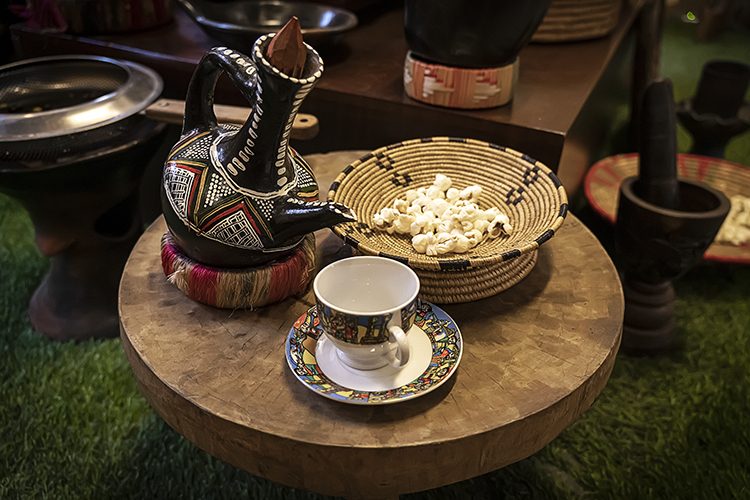Coffee Culture
From poison to productivity.

I have written many of my articles in coffee shops over the years. Tuning out predictable noises and conversations almost makes it easier to focus on writing rather than working in silence, which interrupts my train of thought and somehow reminds me of something I need to do at home. A chemical element of caffeine is a part of the equation to motivate typing. Is that all?
The question that I wonder is why do coffee shops work as a productive setting for so many people?
Coffee is the reason we aren’t drunk all the time (https://bit.ly/3NAzw5S). In medieval times, clean water was hard to find in cities. Drinking water was often contaminated with sewage and could easily make you sick. The process of boiling, brewing and bottling beer killed the bacteria and made it easy to transport. One could drink weak beer all day and avoid bacteria while staying hydrated.
However, the downside was that people were tipsy often. Similar to a college football tailgate party, a steady stream of weak beer was good, until it wasn’t.
“No two drugs have defined human civilization the way alcohol and caffeine have,” writes Chelsea Follett in a USA Today article (https://bit.ly/44ELWkp). People all over the world figured out how to make alcoholic drinks from potatoes, palm, rice and a variety of grains. Caffeinated drinks and alcohol both helped humans defy bacteria that make us sick, but the side effects were drastically different for productivity.
In an evolutionary sense, caffeine was not meant to help us through our day; caffeine was something that killed bugs. In 2014, an international team of scientists published a report on the genome of coffee. They spent a bunch of time (probably at a coffee shop like me) sequencing Coffea Canephora, the scientific name of one of the main coffee ancestors.
They found that tea and cacao had similar evolutionary paths, leading to the use of caffeine as an evolutionary protection tactic. “Evolutionary biologists call this sort of process convergent evolution,” notes The New York Times (https://nyti.ms/3NLQKNZ).
Caffeinated plants can poison insects. Dead caffeinated leaves also create a compost that makes it hard for other plants to grow. In a sense, caffeinated plants wanted nothing to do with other members of the animal kingdom. These plants were trying hard to be left alone. Despite their best, introverted efforts, “every second, people around the world drink more than 26,000 cups of coffee.”
Winning the Popularity Contest
In the 15th century, coffee, as we know it today, gained global popularity. In the Ottoman Empire, beer was not typical in Muslim communities. In what is now Yemen, strong coffee was brewing. As trade expanded worldwide, it was becoming more frequent for mildly drunk Europeans to roll off a ship in the Middle East and return a few days later thinking more clearly, sharper, edgier and caffeinated out of their minds.
They were not dead from giardia; they were writing screenplays or coming up with early cryptocurrency theories, I can only assume. They grabbed a couple of bags of whole beans to-go and started to bring strong coffee culture from eastern Africa to trade routes across the globe.
People around the world were waking up and drinking coffee instead of beer. In the American colonies, caffeinated tea was also popular through trade between England and Asia. Again, like a football tailgate party, mildly drunk Americans can sometimes get into an argument, tip a couple of things over and escalate a situation beyond the wildest expectations.
The event that shaped beverage culture in North America was the Boston Tea Party. Overtaxed and frustrated, American colonists revolted against England and tossed a bunch of tea into the harbor, creating a political scapegoat out of a specific drink. Tea was not cool anymore; coffee took that market share and has held on for hundreds of years.
The timing was good for American colonists to shift from beer because coffee seemed to clear the fog for many U.S. founding fathers. “Thomas Jefferson called coffee ‘the favorite drink of the civilized world,’” USA Today continues. Even today, Americans consume three times more coffee than tea. In the words of historian Mark Pendergrast, “The French Revolution and the American Revolution were planned in coffeehouses.”
Sustainable Coffee?
Will coffee keep this tradition? Are coffee and coffee culture sustainable? Coffee plants can grow in tropical climates all over the world. However, it still is not the best neighbor for other plants.
“Coffee is often grown on steep slopes; if care is not taken, it can lead to erosion and sedimentation of waterways,” notes Coffee International (https://bit.ly/3D5A7rG). “Processing coffee is also water-intensive, and the wastewater can contaminate rivers and streams. Taken together, these practices quickly become unsustainable.”
Coffee popularity is still growing across the globe, but the production of coffee beans will change with the climate. While it is a little nebulous, there are coffee-sourcing standards that consider sustainability. Long-term, it is not a good idea for coffeehouses to source coffee from places at risk of disappearing.
It seems evident that Americans will pay much more for a cup of coffee than anyone had ever imagined, so there is potential that sustainably sourced coffee can keep up with coffee culture.
To recap, coffee makes the United States productive because it is an ancient plant-developed bug poison brewed hyper-strong in Yemen and now subliminally reminds us that we aren’t going to let England push us around.
Coffee shops evolved to bring people together in a vague sense of productive intentions. People gathered in coffee shops to draft ideas for the U.S. Constitution, to strategize during the French Revolution, to write a scathing review of a movie sequel, to meet for extra-nervous social interactions and to show off their new MacBook, among many other things.
Coffee will continue to drive humans if we meet it halfway. It wanted to be left alone completely. At a minimum, we must let it grow sustainably to avoid falling back to our weak, breakfast beer ways.





